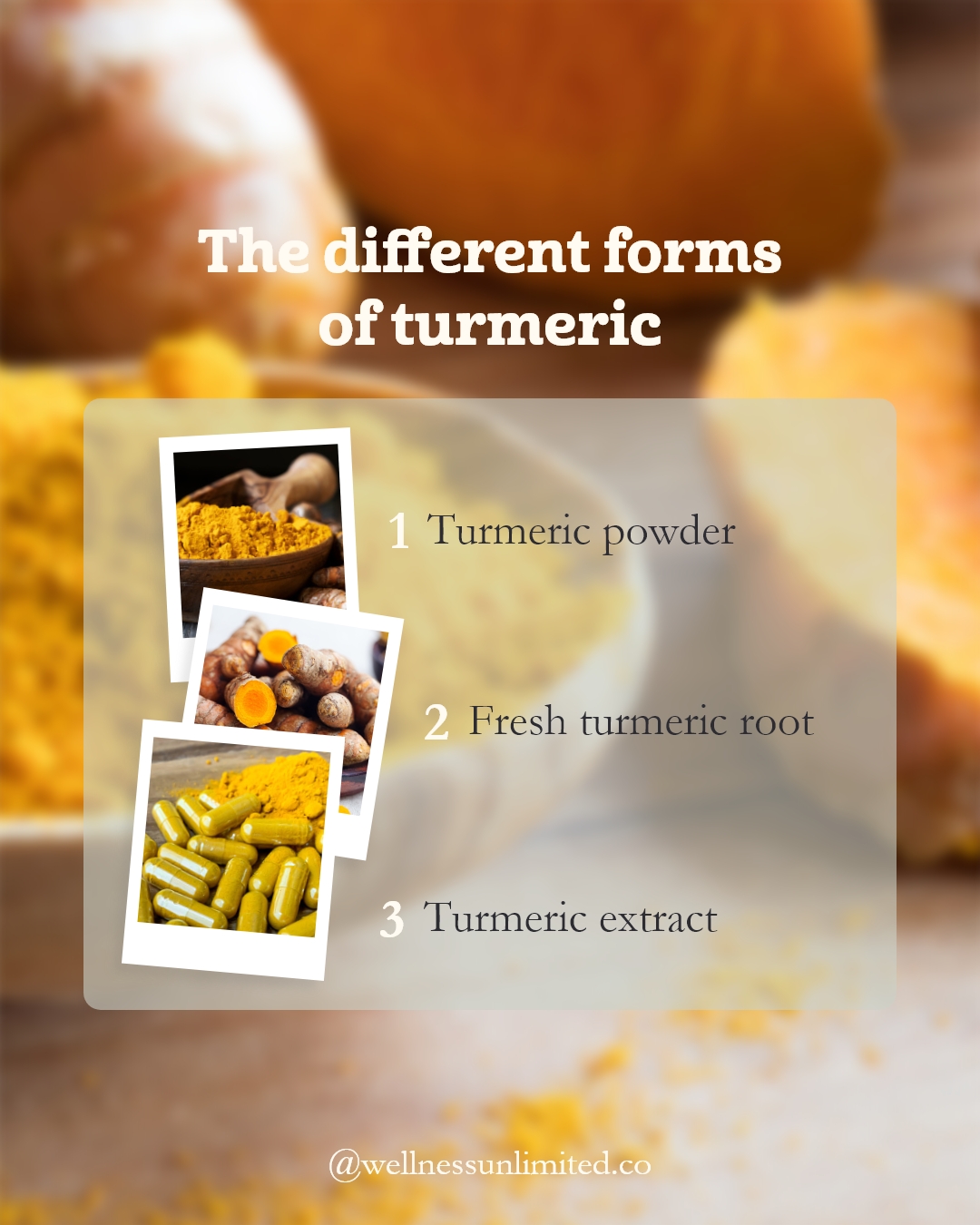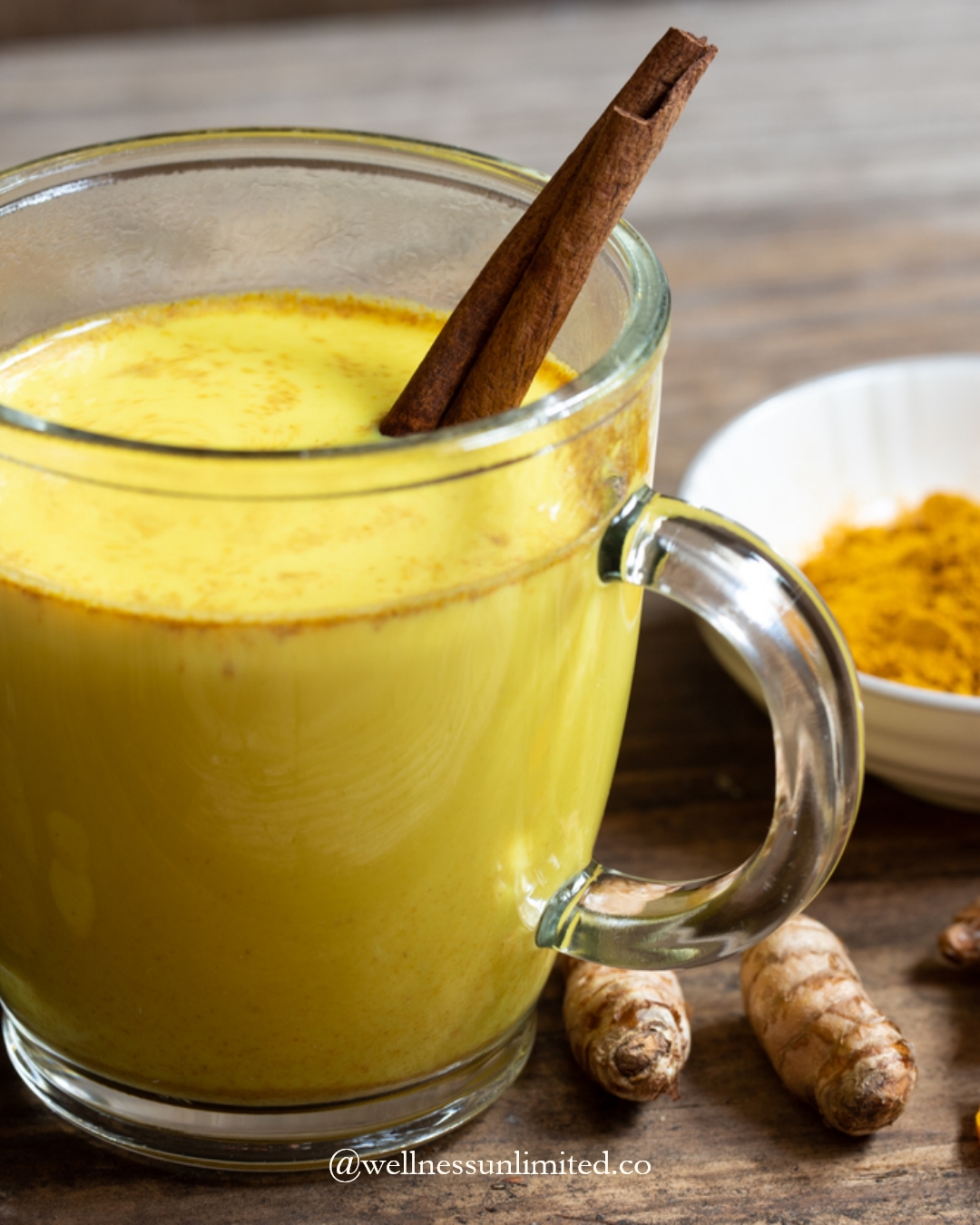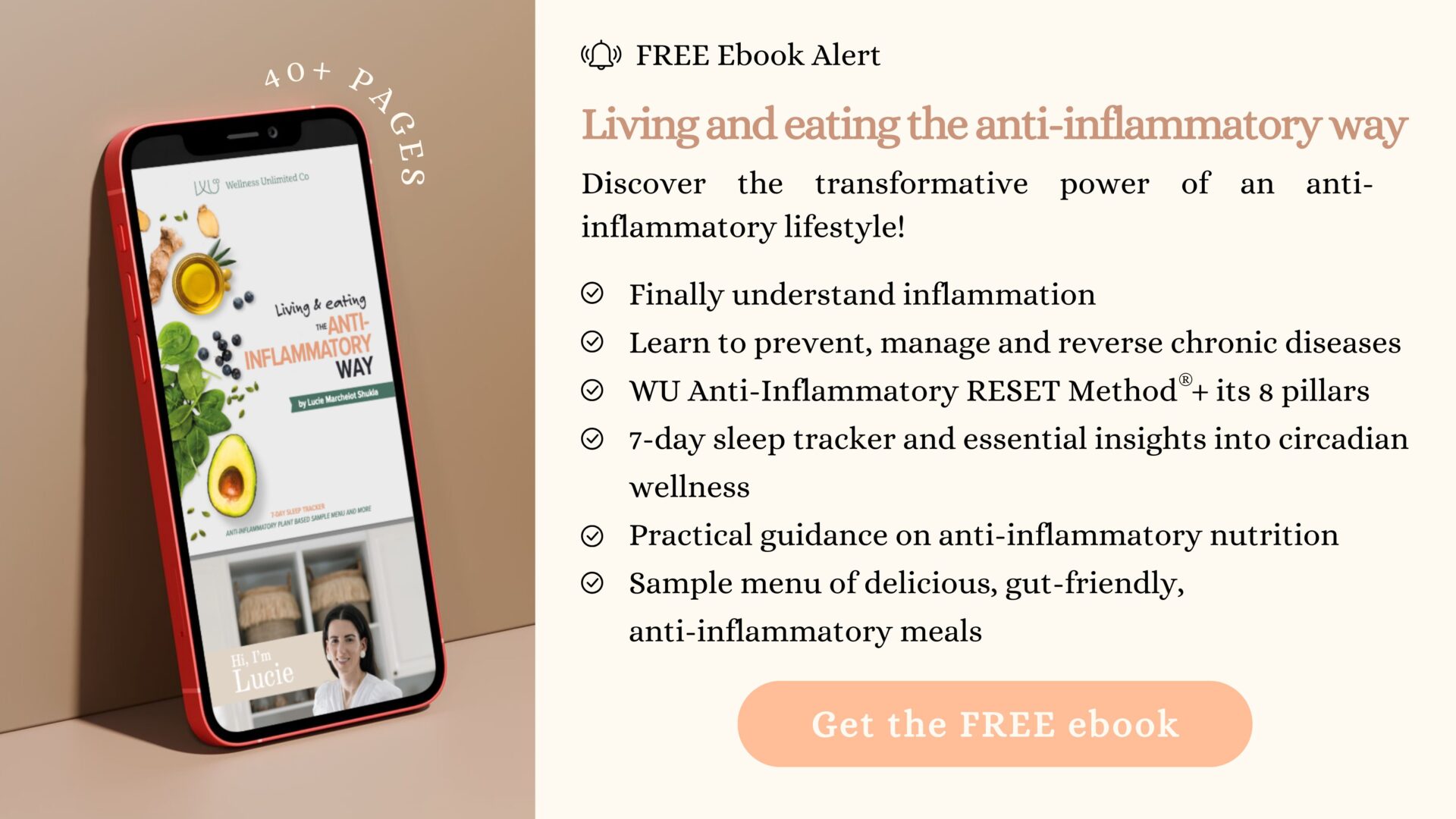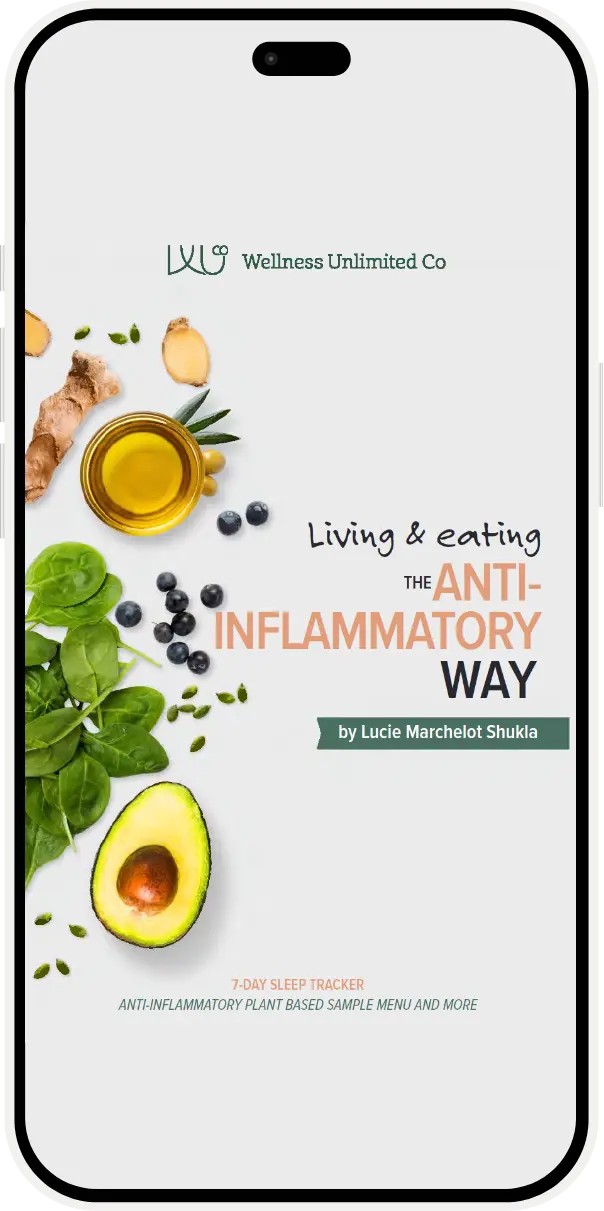How turmeric benefits health: your secret weapon for fighting inflammation naturally

Are you looking for an alternative to over-the-counter medications to manage inflammation? Look no further than turmeric, the golden spice known for centuries for its powerful healing properties. Packed with curcumin, a natural anti-inflammatory compound, turmeric benefits health and offers a safe and effective alternative to conventional treatments.
Turmeric has been an essential part of my own anti-inflammatory journey, and while I may be tempted to recommend it to everyone, it’s always a good idea to consider your personal health needs and preferences when introducing new elements into your wellness routine. In this article, we delve into the benefits of turmeric and explore how it can be your secret weapon for fighting inflammation naturally. From its origins in ancient Ayurvedic medicine to its recent surge in popularity, turmeric has proven time and again to be a versatile and potent remedy. Discover the science behind turmeric’s anti-inflammatory benefits, learn more about turmeric absorption, how to incorporate it into your daily routine, and unlock the full potential of this incredible spice. Say goodbye to inflammation and hello to a healthier, happier you with the help of turmeric.
Why is turmeric good for inflammation? Let’s look at the science
Turmeric’s anti-inflammatory properties have been extensively studied and validated by scientific research. Turmeric has been recognised as a potent anti-inflammatory agent, mainly through the activity of curcuminoids, a group of polyphenols, considered to be turmeric’s active ingredients. Turmeric is composed of approximately 3% curcuminoids by weight. Curcumin works by inhibiting various molecules and pathways in the body that contribute to inflammation. It targets inflammatory enzymes and cytokines, reducing their activity and preventing the release of inflammatory substances. Studies have shown that curcumin can be as effective as certain anti-inflammatory drugs, without the side effects. Its ability to modulate the immune system and suppress inflammation makes it a valuable tool in managing chronic inflammatory conditions.
Not only is turmeric good for inflammation, curcumin also has analgesic properties that can help manage the pain linked to inflammatory conditions such as osteoarthritis, a degenerative joint disease characterised by joint inflammation and pain.
Beyond pain management, turmeric also boosts immune function, supports cardiovascular health, and promotes healthy digestion. By tackling the root causes of inflammation, turmeric offers a holistic approach to managing inflammation-linked conditions.
Also notable are turmeric’s antioxidant properties, which help neutralise free radicals and reduce oxidative damage – a key factor contributing to chronic inflammation and various diseases.
Furthermore, curcumin’s ability to cross the blood-brain barrier has been associated with improved brain health and cognitive function. It helps increase levels of brain-derived neurotrophic factor (BDNF), a protein promoting the growth of new neurons and enhancing brain function. As a result, turmeric consumption has been linked to improved memory, attention, and mental clarity.
Finally, curcumin has been found to regulate the immune system. An overactive immune system can lead to chronic inflammation, but through immune modulation, curcumin helps manage this issue.
5 scientifically researched ways turmeric benefits health
Turmeric is known for its anti-inflammatory properties due to curcumin, a key flavonoid found in turmeric root that has been found to offer multiple health benefits. Numerous studies have been conducted to investigate the anti-inflammatory effects of turmeric and its active compound, curcumin. These studies have yielded promising results, suggesting that turmeric can be an effective natural remedy for inflammation. What are 5 benefits of turmeric?
- It has been studied for its potential role in Alzheimer’s disease, particularly for its ability to decrease brain plaques and protein tangles commonly associated with the condition.
- It can lower inflammation in the body, thanks to its ability to decrease the production of specific inflammatory substances.
- Studies have shown that curcumin, especially when enhanced for better absorption, may decrease the accumulation of damaging proteins in the brain, improving cognition.
- Curcumin can promote the growth of beneficial gut bacteria while suppressing harmful ones, which could improve gastrointestinal health.
- Other studies suggest that curcumin may have potential benefits in managing conditions like cancer, ageing, diabetes, heart disease, stroke, and neurological disorders due to its anti-inflammatory and antioxidant properties.
Is turmeric healthy for everyone?
You may wonder, is turmeric healthy for everyone to take, or what are turmeric health benefits and side effects? Who should not take turmeric? While turmeric is generally safe for most people when consumed in moderate amounts, it’s important to be aware of potential side effects and take precautions.
Turmeric may interact with certain medications, including blood thinners and drugs that reduce stomach acid. If you are taking any medications, it’s best to consult with your healthcare provider before adding turmeric to your daily routine.
In high doses, turmeric may cause gastrointestinal side effects such as stomach upset, diarrhoea, and nausea. If you experience any of these symptoms, reduce your turmeric intake or discontinue use.
Additionally, turmeric may stimulate the production of bile, so individuals with gallbladder issues or gallstones should use caution when consuming turmeric.
Different forms of turmeric and their effectiveness

Now that we know how turmeric benefits health, let’s take a look at its various forms. Here are some of the most common forms of turmeric, their unique characteristics and how you can use them:
- Turmeric powder:
This is the most common form of turmeric and can be found in most grocery stores. It is made by grinding dried turmeric root into a fine powder. Turmeric powder can be used in cooking, baking, and making beverages like golden milk.
- Fresh turmeric root:
Fresh turmeric root looks similar to ginger root and has a bright orange colour. It can be grated or thinly sliced and used in recipes that call for fresh turmeric. Fresh turmeric root has a more intense flavour compared to turmeric powder, so you may need to adjust the amount used in recipes.
- Turmeric extract:
Turmeric extract is a concentrated form of turmeric that is often used in supplements. It contains a higher concentration of curcumin compared to turmeric powder or fresh turmeric root. Turmeric extract can be added to smoothies, juices, or taken as a supplement.
Tip: Be sure to wear gloves while handling turmeric to avoid staining your hands and nails bright orange. If you do get stained, simply clean it off using a mild exfoliating scrub.
Maximise turmeric absorption: How do you fully absorb turmeric?
Curcumin, the active ingredient in turmeric, is fat-soluble. This means it dissolves in fat and is then absorbed into the bloodstream.
In practical terms, when you consume turmeric, it’s beneficial to consume it with a source of fat to enhance the absorption of curcumin. Without fat, much of the curcumin just passes through the digestive tract without being properly absorbed.
The notion that black pepper can increase the absorption of curcumin, the active compound in turmeric, is widespread in the health and wellness industry. Some studies do indeed suggest this, but it’s not necessarily essential for the effectiveness of curcumin.
Moreover, as pointed out in Ayurvedic tradition, combining black pepper with turmeric might not always be beneficial. Ayurveda classifies black pepper as having a heating effect on the body, whereas turmeric is considered cooling. This contrast in properties could potentially disrupt the body’s equilibrium and impede its natural healing mechanisms. Thus, while consuming black pepper with turmeric might boost curcumin absorption, it’s not a universally applicable recommendation and might not be beneficial in all cases or be to include it every time you use turmeric.
How to incorporate turmeric into your daily routine
In food
You can use turmeric in either its fresh form or as a dried spice. It’s a key ingredient in many Indian and other culture’s dishes, offering a warm, slightly bitter taste that complements savoury flavours. It combines well with ginger and cumin which are two other spices that have anti-inflammatory properties.
In drinks
- Turmeric Latte:
Also known as ‘golden milk’, this comforting drink combines turmeric with milk (or a dairy-free alternative).
- Turmeric, ginger, and lemon water:
This refreshing infusion combines the health benefits of turmeric, ginger, and lemon in one soothing drink.
- Turmeric tea:
Enjoy the benefits of turmeric with convenient teabags. These are available as pure turmeric tea or in combination with other beneficial ingredients such as ginger.
Supplement and medicine
- Anti-inflammatory supplement:
Turmeric’s key component, curcumin, has anti-inflammatory properties similar to some steroidal drugs and non-steroidal anti-inflammatory drugs. To maximise its absorption, it’s better to consume turmeric in its powdered or fresh root form, preferably with fatty foods and/or black pepper.
- Gargling with turmeric:
This practice can help relieve sore throats and oral inflammation. Simply swirl a warm mixture of water and turmeric with salt in your mouth and throat. Avoid swallowing the solution post-gargling. I have noticed better results with the addition of turmeric than with just water and salt.
- Turmeric broth:
Recently, I’ve started to incorporate a nutrient-dense turmeric vegetable broth into my wellness routine, especially when feeling run down. This comforting broth not only provides hydration and warmth, but also boosts immunity, aids digestion, and enhances nutrient absorption due to its anti-inflammatory benefits.
How much turmeric should you take a day?
Generally speaking, a level teaspoon of turmeric per day is regarded as beneficial for adults. It is important to note that turmeric benefits health differently from person to person, and as mentioned above, it is recommended that you consult your physician before incorporating turmeric daily if you are taking specific medication or have any pre-existing health concerns.
Where to buy turmeric
Finding high-quality organic turmeric is essential to fully benefit from its health-enhancing properties. Here are some options:
- Affordable supplement:
In my quest to find a cost-effective, high-quality turmeric supplement, I’ve done considerable research. The brand that has consistently stood out to me is Fushi. Celebrated for its potent and pure offerings, Fushi delivers a compelling blend of affordability and quality.
I’ve been an ardent user of Fushi’s organic products for years, and when asked to recommend a brand that fuses affordability with premium Ayurvedic ingredients, Fushi remains my top choice. Here’s why:
√ Fushi’s offerings are wholly natural and organic, ensuring you receive the purest products.
√ Unlike many supplement brands, Fushi refrains from adding any harmful additives to their products.
√ Each product is handmade with meticulous care in London, reflecting their commitment to quality.
√ Fushi sources their ingredients ethically, which aligns with my personal commitment to conscious consumption.
√ The prices strike an excellent balance between affordability and quality.
So, if you’re seeking high-quality, reasonably-priced Ayurvedic supplements and oils, I highly recommend giving Fushi a try. I’m confident that you’ll appreciate their products as much as I do. As a bonus for the WU community, I’ve managed to secure a 15% discount on their entire store! Enjoy the savings and the health benefits that come with it using my code: WELLNESSUNLIMITEDCO
- Fermented turmeric:
Terranova offers fermented turmeric supplements which are more pricey. Fermentation can enhance the bioavailability of curcumin, making these a potentially more effective option depending on your needs.
- Organic turmeric powder or fresh roots:
You can often find organic turmeric powder or fresh roots at your local grocery store or health food shop. Be sure to look for organic sources to avoid potential exposure to pesticides.
Recipes and meal ideas using turmeric
I use turmeric in almost all my cooking, from soups and stews to stir fries and pasta sauces.
Download your free copy of the Mastering Anti-Inflammatory Nutrition For Optimal Gut Health
guide for 2 recipes that contain turmeric:
Rainbow quinoa tempeh bowl
Lentil spinach soup
Other natural remedies to fight chronic inflammation
While turmeric is a powerful natural remedy for inflammation, there are other natural remedies that can also help combat inflammation and promote overall health. Here are a few:
- Other herbs and supplements
Like turmeric, ginger has potent anti-inflammatory properties. It can be added to meals, brewed into tea, or taken in supplement form.
Found in fatty fish like salmon, mackerel, and sardines, omega-3 fatty acids have been shown to also reduce inflammation in the body.
- Stress management practices
The impact of stress on inflammation cannot be overstated. Incorporating mindfulness practices, yoga, breathing exercises, meditation, or even a simple walk in nature can help manage stress levels and subsequently curb inflammation.
- Limiting exposure to toxins
Reducing exposure to environmental toxins can also help minimise inflammation. This includes adopting a more natural lifestyle, using cleaner beauty and household products, and eating organic when possible.
- Adopting the WU Anti-Inflammatory RESET Method™
This holistic approach, designed to reset your lifestyle, helps you take control of chronic inflammation through a combination of dietary changes, physical activity, rest, stress management, and a focus on optimising gut health.
In conclusion, turmeric is a powerful spice that can help naturally combat inflammation and promote overall health. Its anti-inflammatory properties, attributed to its active compound curcumin, have been supported by numerous studies. By incorporating turmeric into your daily routine through cooking, supplementation, or enjoying beverages like golden milk, you can harness the potential health benefits of this golden spice.
As with everything health and wellness related, it’s important to remember that it is a holistic approach. One single element like turmeric may not be a miracle cure to all your problems and symptoms.














